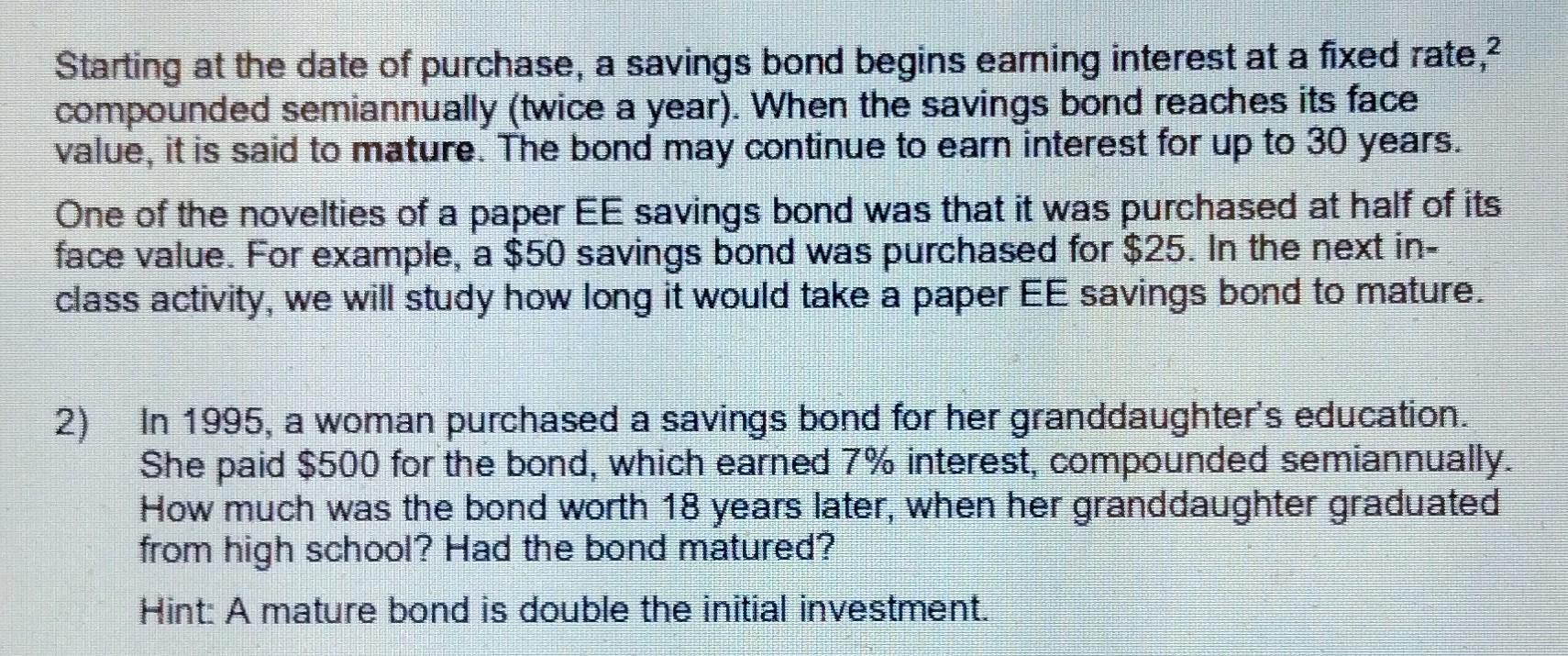Answered step by step
Verified Expert Solution
Question
1 Approved Answer
Savings Bonds For many years, the U.S. Treasury has issued savings bonds, starting with Series A in 1935 and continuing through Series EE (available


Savings Bonds For many years, the U.S. Treasury has issued savings bonds, starting with Series A in 1935 and continuing through Series EE (available now). These bonds have been considered a safe, reliable investment. Many families have used savings bonds as a tax-exempt way to save money for a child's education. Until fairly recently, savings bonds were issued in paper form, and the owners were responsible for keeping them in a safe place until they were ready to redeem them (cash them in). Now, the government only issues electronic savings bonds. Starting at the date of purchase, a savings bond begins earning interest at a fixed rate, compounded semiannually (twice a year). When the savings bond reaches its face value, it is said to mature. The bond may continue to earn interest for up to 30 years. One of the novelties of a paper EE savings bond was that it was purchased at half of its face value. For example, a $50 savings bond was purchased for $25. In the next in- class activity, we will study how long it would take a paper EE savings bond to mature. 2) In 1995, a woman purchased a savings bond for her granddaughter's education. She paid $500 for the bond, which earned 7% interest, compounded semiannually. How much was the bond worth 18 years later, when her granddaughter graduated from high school? Had the bond matured? Hint: A mature bond is double the initial investment.
Step by Step Solution
★★★★★
3.40 Rating (156 Votes )
There are 3 Steps involved in it
Step: 1
step ...
Get Instant Access to Expert-Tailored Solutions
See step-by-step solutions with expert insights and AI powered tools for academic success
Step: 2

Step: 3

Ace Your Homework with AI
Get the answers you need in no time with our AI-driven, step-by-step assistance
Get Started


